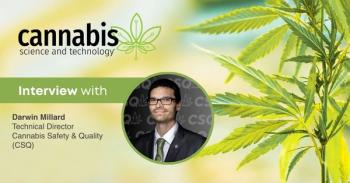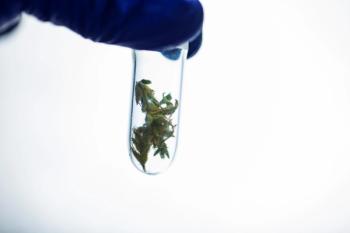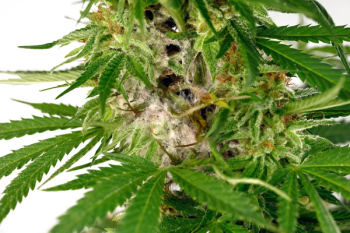
The Science Behind the Emerald Conference

John S. Abrams, PhD, discusses some of the cutting-edge work he’s involved in and what he’s looking forward to at this year's Emerald Conference.
As the Emerald Conference quickly approaches, we spoke with John S. Abrams, PhD-Principal of Abrams Bioconsulting, Chairman and CSO of The CESC, and CSO of Orion GMP Solutions-to get some insider information on the type of science we can expect to hear at this year’s conference. Here, Abrams discusses some of the cutting-edge work he’s involved in and what he’s looking forward to at the conference.
How is the industry establishing regulations and compliance in a scientifically sound and evidence-based manner?
John S. Abrams: Establishing regulations and compliance in a scientifically sound and evidence-based manner is a slow and evolving process. It doesn't happen quickly, and sometimes it is not straightforward. As we emerge from the shadows of prohibition, we have to be mindful of not having to reinvent the wheel each time.
We should look to other industries where there are relevant, useful, and validated approaches. There are, however, some approaches which come from the early days of back-alley cannabis labs that need to be scrutinized and re-evaluated in the light of good scientific practices. This is particularly relevant in the context of designing sampling plans. Additionally, analysts in this field need to realize that their methods should be open, discussed, and reviewed. This is neither the time nor the place to be considering analytical approaches as proprietary-we must collaborate.
Finally, I would like to add that the industry should collectively support federal descheduling as quickly as possible to allow interstate transport of samples for analytical purposes. That way, the best and most advanced analytical facilities can help establish answers to the more difficult questions in cannabis science.
What is the significance of multivariate statistics and design of experiments (DOE) in cannabis strain chemotype profiling?
Abrams: Cannabis is a complex botanical. It contains a myriad of natural products. In some combinations they confer the desirable properties of the cannabis commodity. Statistical approaches like multivariate analysis can be useful for simplifying that complexity. The goal of multivariate analysis is to come up with a limited set of parameters, of answers to communicating the complexity of cannabis natural product content that product users can more easily understand, and to tie their experience to approaches such as design of experiments (DOE), provide a framework for cultivators trying to understand what key factors may affect cannabinoid and terpenoid production. These are the key elements defining cannabis chemotypes.
DOE allows for simplification and reduction in the number of different experimental runs required to draw meaningful conclusions. It is fundamentally a way to get more bang for your research buck.
How has applying antibody development and immunoassay-based technologies advanced cannabis product assays?
Abrams: Like so much in the cannabis science field, applying antibody development and immunoassay-based technologies to advance cannabis product assays is a developing story. We are actively pursuing the development of in-vitro cell-based bioassays to determine functional activity (what we really mean when we say "potency") of various cannabinoids such as THCA and CBDA. We rely on antibodies as tools to provide specificity and selectivity to such cannabinoid bioassays. This is one of the principal reasons I developed such anti-CBD(A) antibodies several years ago.
As a scientific committee member of the Emerald Conference, what do you look forward to most at the conference?
Abrams: As a scientific committee member of the Emerald Conference, what I’m looking forward to most at this year’s conference is the opportunity to foster collaboration and innovation with like-minded participants.
There are many different ways to become informed on cutting edge knowledge and state-of-the-art innovation including:
- Peer-reviewed formal oral presentations
- Poster sessions and networking
- Exhibitor hall
- The opportunity to earn continuing education credits from the American Association of Bioanalysi
- Professional Enrichment Education Renewal (PEER) program for Emerald Conference attendees
- Quality Summit featuring: Nomenclature standardization session (complete with audience live polling) and presentations on cannabis reference standards and materials generation
Newsletter
Unlock the latest breakthroughs in cannabis science—subscribe now to get expert insights, research, and industry updates delivered to your inbox.




